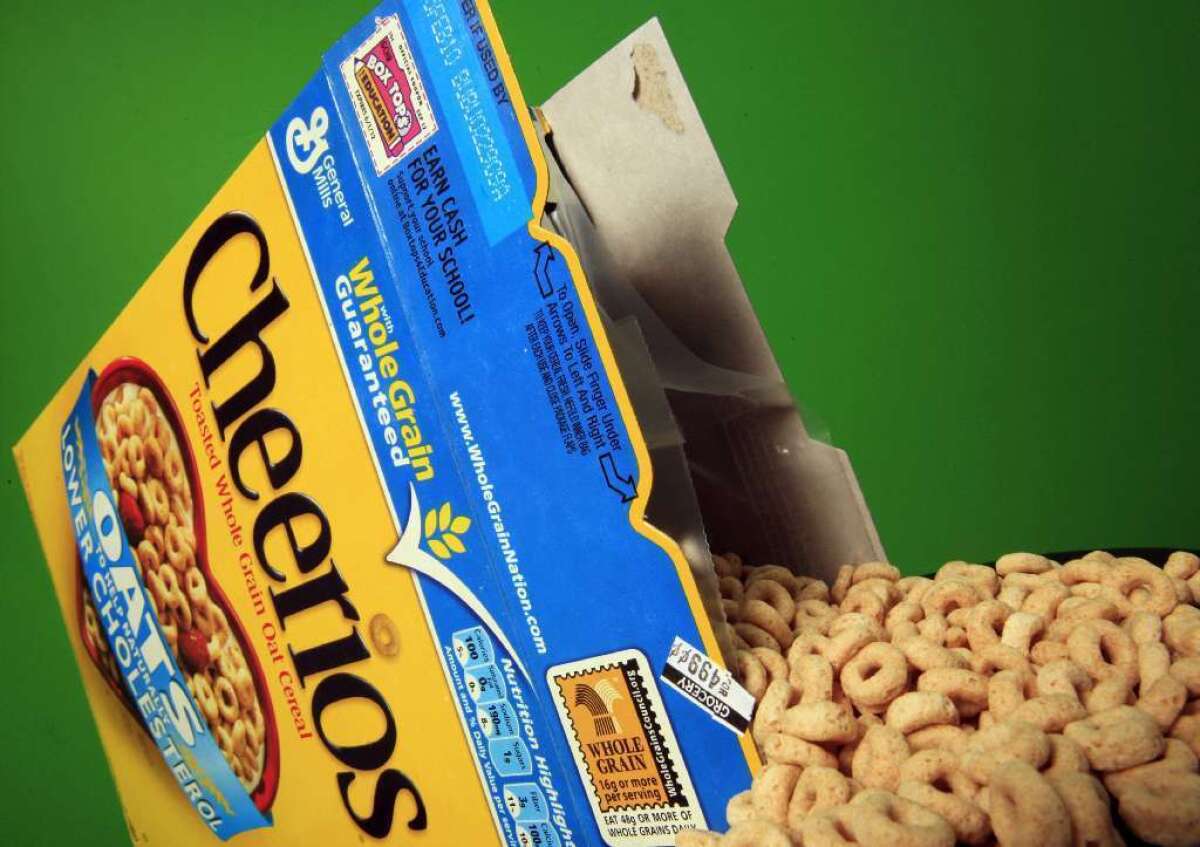Non-GMO Cheerios are just what the customer ordered

- Share via
It’s good news that General Mills has decided not to include genetically engineered ingredients in Cheerios. Not because crops whose DNA has been tinkered with in a laboratory are dangerous to human health. There’s still a dearth of evidence that they are.
But plenty of consumers don’t like them and outright fear them. (By the way, a New York Times article published Sunday does an excellent job of examining the claims and facts about bioengineered food, in a thorough and balanced way, by following a Hawaii councilman’s journey to learn as much of the truth as he can about such food before voting on the topic.) The announcement by General Mills reflects the market’s willingness to respond to consumer demand.
It also bolsters the argument of The Times’ editorial board that efforts to require labeling of genetically engineered food are unnecessary. If customers want non-engineered foods, and are willing to pay for them, food companies have every right not to use those ingredients and to label their products accordingly, which helps boost sales. (The foods are popularly called genetically modified organisms, or GMO, but the FDA says the technically correct term is genetically engineered or bioengineered, because plants also can be genetically modified through regular hybridization.)
PHOTOS: 10 tips for a better life from The Times’ Op-Ed pages
Market forces already were beginning the process of responding to consumer concerns. Trader Joe’s has said that it will keep the products under its label free of genetically engineered ingredients. Whole Foods announced that it would eliminate all bioengineered food within the next few years. More recently, it said it would stop selling Chobani yogurt because the cows are fed genetically engineered grain, but the change also was made because Chobani is no longer considered a gourmet-type item; it’s available pretty much everywhere. Ben & Jerry’s has similarly sworn off genetically engineered ingredients.
Organic food is, by definition, free of lab-made DNA. Beyond that, organic meat and dairy come from animals that were not fed such food.
But these are upscale markets and upscale foods. Cheerios is not a chichi grocery item by anyone’s definition. This is the first time the anti-GMO movement has had a major victory in the Everyman market.
To be sure, this wasn’t the toughest call for General Mills. Oats, the main ingredient, are not genetically modified in any case. It’s the corn starch and the sugar that will have to change. In addition, Cheerios is used by parents as an early finger food for babies, since the little Os soften quickly in a child’s mouth, requiring no real chewing. And parents want to feel that their children’s foods are as safe as possible; genetically engineered foods don’t fit that definition by many people’s reckoning. So General Mills is catering to a particular segment of the market.
That’s all good. The Times’ objection to Proposition 37, which would have required the labeling of bioengineered foods, was never that consumers should have to eat such foods. It was that there was not a rational explanation for forcing food companies to add the wording to labels. There are many things going on with our food that have more reasons to be questioned than DNA manipulation, such as the use of certain pesticides, hormones and antibiotics. But if consumers don’t want genetically engineered food, so be it. The food industry has every right to respond, and it’s obviously doing so. All it takes are customers who vote with their wallets.
ALSO:
Blurring the line between life and death
A solar array won’t hurt the mood of Manzanar
More to Read
A cure for the common opinion
Get thought-provoking perspectives with our weekly newsletter.
You may occasionally receive promotional content from the Los Angeles Times.







